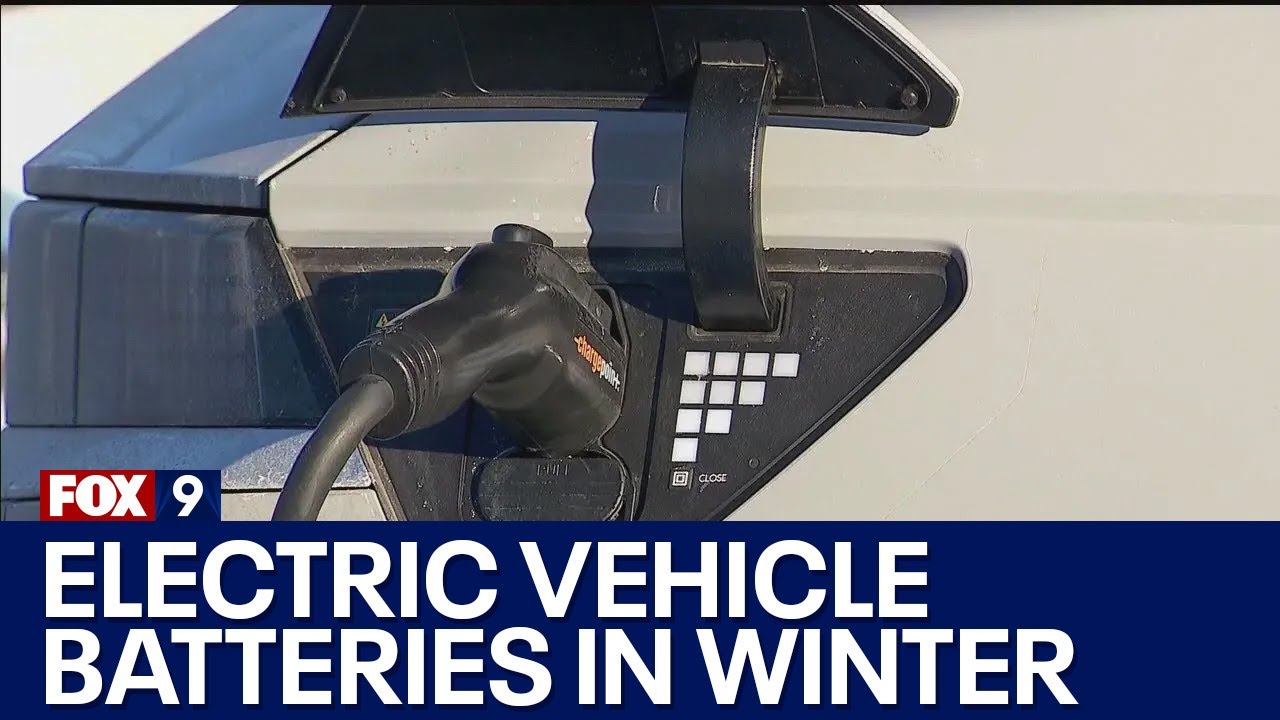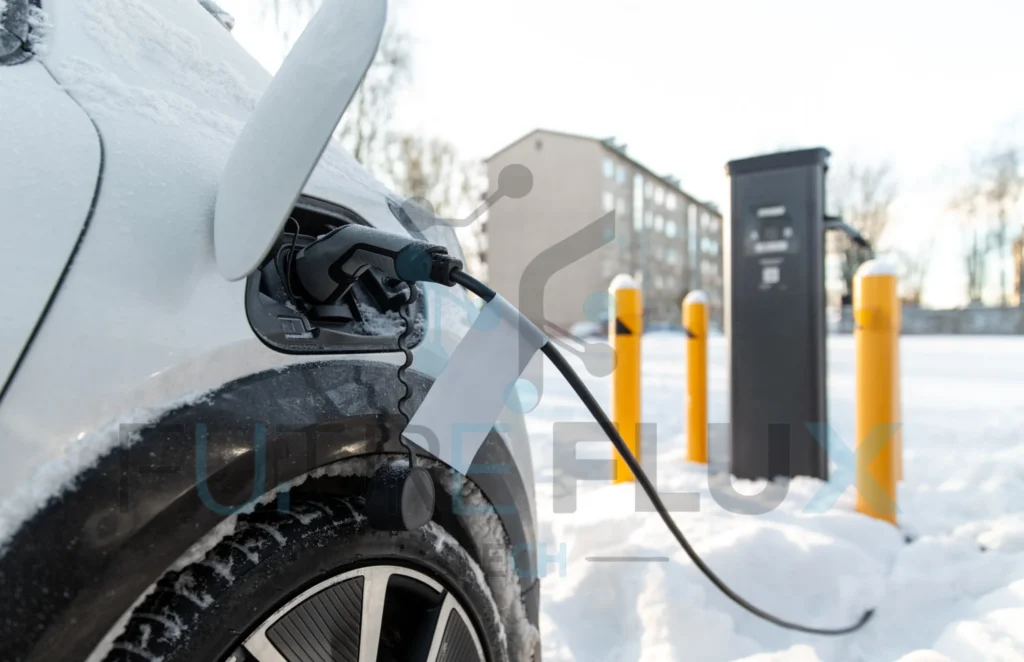Unfortunately, winter weather is challenging, particularly for electric vehicle owners. There are many reasons behind this; for instance, there are slippery streets, too much snow on the vehicle, ice-cold steering wheels, and most of all, the idiotic behavior of other drivers. However, there are other significant problems for EV vehicle owners during the winter season, primarily related to EV charging and driving range. There are many, many things you should know about winter if you are new to driving an EV or you are moving to a colder place with your EV. Read on to learn how cold weather affects electric cars. Also, you will get the answer to why a new test reveals electric cars are practically unusable in winter.
Is It True That the New Test Reveals Electric Cars Are Practically Unusable in Winter?
Recent tests have proven that electric cars are less efficient during the cold season. The prime reason for this is that during winter, the cold weather affects the battery performance. Therefore, the winter performance of the EV battery needs to be improved as it lessens range and forces the owner to change frequently. This adverse effect of weather on EV batteries is due to the chemical reaction happening in the battery to reserve and release electricity. Therefore, it results in a drastic loss in the usable range of EV vehicles. Thus, a new test reveals electric cars are practically unusable in winter.

Electric Vehicle Challenges in the Winter Season
Below, we have discussed the hardships with EVs during the winter season and also talked about why the test reveals electric cars are practically unusable in winter.
1- EV battery performance
It is a common concern for electric vehicle owners that cold weather affects EV batteries. Most electric cars run on lithium-ion batteries, which are sensitive to extreme cold temperatures. Hence, the performance of the EV battery in cold weather changes. In simple words, your electric car battery is unable to receive charge the way it does in milder months.
However, there is no definite answer to how cold is too cold for your electric vehicle battery or to what degrees the car battery gets killed. Some professionals agree that the overall performance of electric car batteries depends on the fullness of the batteries. Also, it depends on at what time of the day you are driving. Moreover, many other factors also affect the performance of the electric car battery.
A good amount of energy is used in your electric vehicle heating system; therefore, blowing up your heater, although tempting on a cold day, will indeed affect the performance of your EV and overall mileage. However, only the central heating system is not responsible for lessening your EV’s performance storage. Other elements can decrease your overall performance of EVs. Following are the things you should look out for when you notice the low performance of your EV:
1- Windscreen wipers
2- Lights
3- Tyre pressure or the general condition of the tire
4- Driving circumstances will majorly impact on your EV’s performance
2- Tyre Traction and Pressure
First, let us tell you what tyre traction is. It is the grip of your tyres against the surface of the road. While speeding, it is vital to have good traction as it helps the car to stay firmly connected to the streets. However, at the same time, it prevents the wheels of the vehicle from slipping. Hence, electric cars face ice and rainwater on the roads in freezing weather; in this situation, tiring and e-traction play a vital role. The amount of grip your tyres have control the car and hugely impacts braking distance.
Furthermore, keeping the tyres inflated at ideal pressure is also crucial for your car because it helps it handle sudden weather conditions during colder months by ensuring better traction.
Tips To Maximize EV Driving Range In Cold Weather
Following are the tips that you can follow to increase the winter driving range of your EV.
1- Get a Heat Pump Along With an EV
If you are worried about your Tesla battery’s cold situation, do not stress; it is entirely normal. If you reside in an area where the temperature is cold most of the time, purchase a heat pump along with an EV. A heat pump pulls in the warmth from the atmosphere, even in cold temperatures, to keep the passengers warm. As a result, it lessens the amount of energy required for climate control, thus improving range.
2- Park indoors when possible
If you have a garage at your home, then it is best to park your EV in the garage. In the winter season, electric cars are stuck in snow; therefore, parking in the garage will save you from this problem to some extent. Moreover, if you have a heated garage, that would be best. It is beneficial for your car to stay closer to its ideal temperature, i.e., 60-85 degrees Fahrenheit. However, even 40 degrees is better than 20.
3- Keep your car plugged in before driving
This point is crucial because it will help you in two ways that can increase range. First, it will keep the batteries warm until you disconnect them. Also, relying on your vehicle or your home charger, you may be capable of setting a leaving time. As a result, it will precondition your EV battery for your trip.
4- Drive slowly
The sad truth about electric vehicles is that the range of these cars decreases during colder months. However, you do many things to make it better. One of them is controlling your car speed by around five mph on a motorway. Doing this can support your EV’s range. Moreover, you can avoid accelerating sharply and keep the hard braking of your car to a minimum.
How To Charge EV In Cold Weather

Following are the things that you can do to charge your EV batteries efficiently during cold weathe
Use level 2 charging at your home. Many EV owners install a level 2 charging or a 240-volt outlet at their homes. This will charge the car much faster.
Suppose you are planning to go on long trips and will need extra time to charge your phone—budget spare time for your trips. With less range, you will need to set it frequently, and charging stations will also take longer. Planning your trip ahead of time will make your journey smoother.
Try to use the preconditioning feature if you have one in your car.
Keep your battery above 20% all the time because the battery charges faster if it is between 20%-80%. Also, it saves you from any casualties.
Therefore, now do not question yourself, ‘Are electric cars bad in cold weather?’ because there are many things that you can do to make the EV battery performance good. Also, it depends on the manufacturer of the EV that you own. This is because different companies’ EVs behave differently in cold weather.
Different EVs and Their Ranges in Different Weathers
| Electric Cars | Winter Range (miles) | Summer Range (miles) |
| Tesla Model Y Long | 272 | 304 |
| Cupra Born 58 kWh V3 | 182 | 219 |
| BMW i4 eDrive40 M-Sport Pro Pack | 261 | 317 |
Conclusion
Undoubtedly, EV is the perfect choice for anyone, particularly for those who like to have eco-friendly cars. However, many drivers ask, “Are electric cars good in cold weather?” before buying. Therefore, we have written this article for them. Hopefully, it will help them. It is true that when the cold season comes, it is crucial to maintain the smoothness of any car. There are plenty of reasons behind this. However, we have told you in this article how to overcome the challenges of EVs during the winter season.
Also, now you might get the answer to why a new test reveals electric cars are practically unusable in winter. If you are a new driver of EVs, follow the preventive measures to control the EV battery range during the winter season.
I’m Waqas, an electric vehicle enthusiast and tech writer with over 6 years of experience covering the EV industry. I write in-depth articles, comparisons, and reviews to help readers understand the fast-evolving world of electric mobility. From battery technology to EV launches and charging trends, I aim to make complex EV topics simple, engaging, and informative for everyday drivers and curious readers alike.





